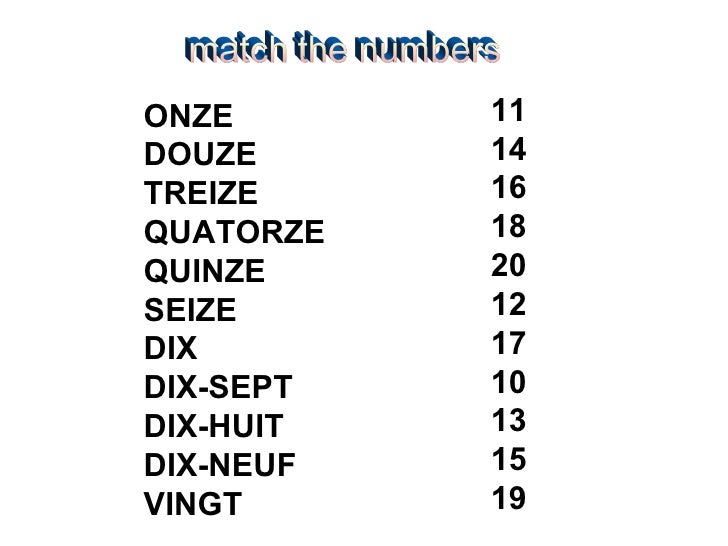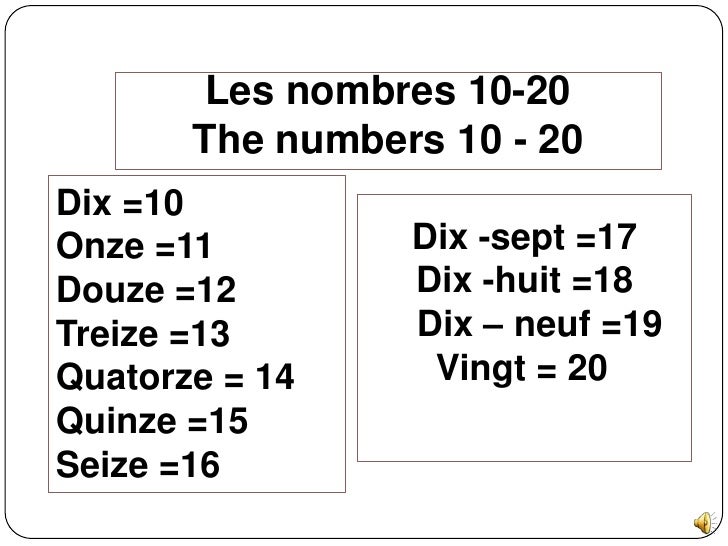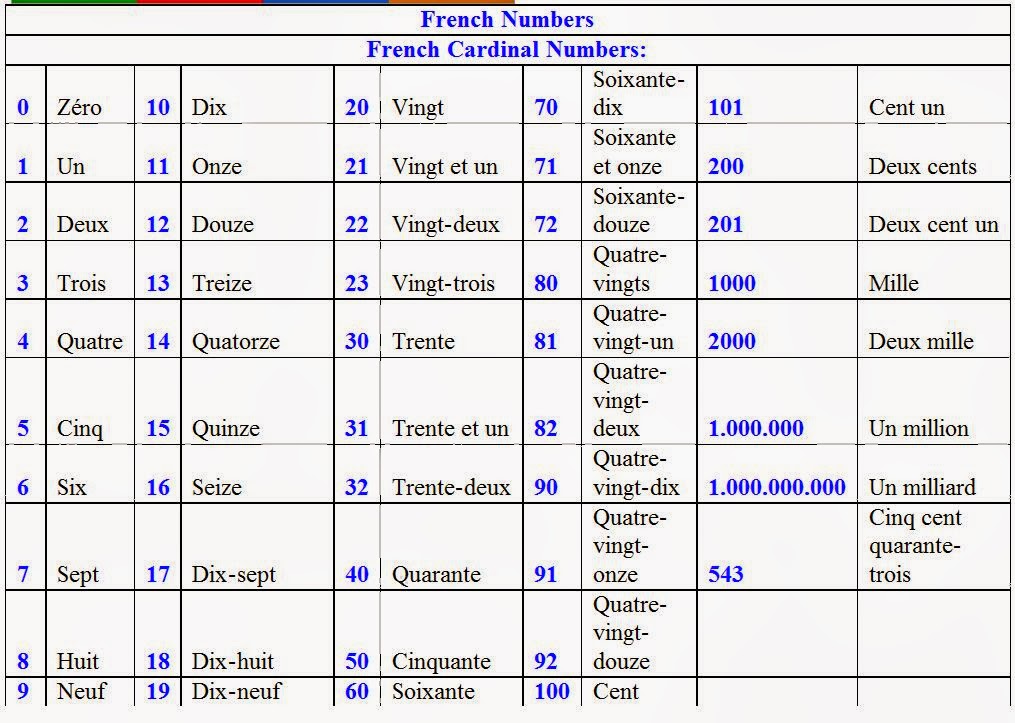Learning any new language is a hassle, especially when it comes to french. In addition, French numbers are tricky to memorize, mainly because they contain a few unique counting rules. Moreover, you need to be good enough at doing mental math as it requires a lot of repeated steps to follow. If you are interested in learning french numbers, making flashcards or printing out a cheat sheet helps a lot. As a result, you can look at it on the go. For example, you just stick it on the wall in front of your study table. As a result, you can see it multiple times every day.
Moreover, if you’re most of the people who spend way too much time scrolling through the internet, you might have already had some French learning on the go if you’ve ever come across one of these viral French counting memes. Those types of short videos are the best way to learn numbers 1-1000 in french.
Language content and videos have taken the internet by storm over the years. Moreover, the culture of reels and shorts has given these types of informative videos a sudden boom. For instance, people are nowadays obsessed with France and the French language. Not only the language but also the numbers and how they spell it. Everyone’s interest in the subject is due to how the French craft their numbers.
Moreover, In French, there is no number such as 70. Yes, you heard it right it does not exist. Instead, the French use their number for sixty and ten, soixante and dix, and merge them to represent the number 70 as soixante-dix. Moreover, you get sixty-eleven, sixty-twelve, and so on until you reach 80. Furthermore, adding the numbers like four-twenty, or quatre-vingt, represents 80. Needless to say, It seems like a pretty illogical way to count for English speakers, but for the French, it works pretty well.
The good thing is that when you start to count in French, the first number zero has no changes in it and zero is just spelled as zero. But after that, you run out of luck because as we have seen before, French numbers do not always follow the same pattern or rules as they do in English. The only similarity between the french and English numerical systems is the numbers zero and six which are spelled the same in both languages. Although they share the same spelling, we cannot distinguish them as they have completely different pronunciations. In the French language, the letter “x” is pronounced more like an “s” when it’s at the end of a word like it is with six. So you would pronounce six like “sees’’ with a bit more emphasis on the “s”.
Even though all this might sound hard and you might be thinking that this is impossible for you, it is not. With proper and daily work you can easily master this. So now, let’s dive into French numbers 1 to 10!
Numbers 1-10 in French

The numbers from 1 to 10 are spelled;
1: un
2: deux
3: trois
4: quatre
5: cinq
6: six
7: sept
8: huit
9: neuf
10: dix
Remember, the number zero is the same as in English so don’t try to covert it. Since these numbers are very basic and make the core of your learning, try to master them. You can copy and paste these numbers into the notes section of your phone, so you can look at them whenever you have a minute or two to spare. As a result, you will learn more in less time.
Numbers 10-20 in French

When we count beyond 12 in English we use the term “teen”. Well, the case is not so different here as well. The difference is, in E English, we count like this from 13 to 19, while in french it only lasts from 17 to 19. Instead of the term “teen”, we will be using “dix”. So 18 will be “dix-huit” or ten-eight.
10: dix
11: onze
12: douze
13: treize
14: quatorze
15: quinze
16: seize
17: dix-sept
18: dix-huit
19: dix-neuf
20: vingt
In order to learn these numbers, you can try learning it from the calendar. Try to spell different dates from your memory and check how many have you done right. It is okay if you are getting a few wrongs at the beginning, it can be resolved through practice. This is the stepping stone for you to learn numbers 1-1000 in french.
Numbers 20-29 in French

Things get a bit easy for a while when you reach 20. Let’s suppose you want to say 27, you’ll say the French word for twenty, vingt, and then add the French word for 7, which is sept. as a result, you will get vingt-sept twenty-seven. Despite this, there is a small catch. There is a rule different from English when you have numbers with the number one in the last digit. In these cases, like thirty-one, you say “and one,” instead of just “one.” For example, thirty-one would be trente et un, and not trente-un.
20: vingt
21: vingt et un
22: vingt-deux
23: vingt-trois
24: vingt-quatre
25: vingt-cinq
26: vingt-six
27: vingt-sept
28: vingt-huit
29: vingt-neuf
Moreover, In order to learn these, you can try learning it through time. For instance, if you are waiting in line for a bus, or standing in a queue for movie tickets, you can always just count the time you are standing in french. In this way, you will pass the time and practice, both at the same time.
Numbers 30-60 in French

The numbers from 20 to 69 follow the very same rule we saw before. Therefore, for these numbers, you can go back and remember the steps or rules for 20 to 29 to see how each number works.
30- trente
40- quarante
50- cinquante
60- soixante
In order to learn these, try counting in French when you’re working out. Needless to say, it will help you remember things better with muscle memory. For example, count how many push-ups or squats you can get in a minute.
Numbers 70-79 in French

Like I mentioned earlier, French counting rules start to get a little tricky when it comes to 70. In French numeric system, instead of having a different number for 70 like there is for 20, 30, 40, 50, and 60. Instead, you need to use “sixty-ten”. After sixty-ten, or soixante-dix, you need to follow the very same pattern from eleven ( which will be “et onze”) to nineteen ( which will be “dix-neuf”). Here you will need to do a lot of mental math and calculation or else you will get confused.
70: soixante-dix
71: soixante et onze
72: soixante-douze
73: soixante-treize
74: soixante-quatorze
75: soixante-quinze
76: soixante-seize
77: soixante-dix-sept
78: soixante-dix-huit
79: soixante-dix-neuf
In order to learn these numbers, try to memorize historical dates and stuff. In this way you will come across a lot of combinations of numbers. As a result, it will benefit your learning process.
Numbers 80-100 in French
Okay so, this is probably the hardest part of the leaning process. In numbers from 70 to 79, you used a bit of adding different numbers. But when you step into 80, you go another step forward. Now, you need to multiply instead of adding. As a result, 80 is not spelled as soixante- vingt or sixty-twenty. Instead, it is quatre-vingt or four-twenty. Furthermore, when you get to ninety, you say four-twenty-ten or quatre-vingt-dix. In addition, there is another exception in this list. Asa we have learned earlier, the numbers that end with one should be written as “et-un”. But in the case of 81, you simply write “vingt-un” instead of vingt-et-un”.
80: quatre-vingts
81: quatre-vingt-un
82: quatre-vingt-deux
83: quatre-vingt-trois
84: quatre-vingt-quatre
85: quatre-vingt-cinq
86: quatre-vingt-six
87: quatre-vingt-sept
88: quatre-vingt-huit
89: quatre-vingt-neuf
90: quatre-vingt-dix
91: quatre-vingt-onze
92: quatre-vingt-douze
93: quatre-vingt-treize
94: quatre-vingt-quatorze
95: quatre-vingt-quinze
96: quatre-vingt-seize
97: quatre-vingt-dix-sept
98: quatre-vingt-dix-huit
99: quatre-vingt-dix-neuf
And finally…
100: cent
In this same manner, you can learn numbers 1-1000 in french if you keep on practicing regularly.
Numbers 1-1000 in French
If you know how to count to 100 in french, the rest is easy to acquire. deux cent mille is two hundred thousand (200.000). Remember from the lesson on numbers 0-100 that for all numbers ending with un, that un becomes one before a feminine noun. In this way, you can count numbers 1-1000 in french.
Numbers in French with pronunciation
Most people who are learning French, they see the numbers like twenty-five as two separate numbers and pronounce it separately as well. Despite that, the French people do not think like that. For a native french speaker, they are so accustomed to numbers that they see “twenty-five” as one piece of information and has one sound. In addition, they do not need to do the mental math. Hence, their pronuounciation is way better. Try to learn your numbers in this way, keeping these points in mind and you will see progress in your learning.
Although, there are some easy ones as well. Like 100. Its called a cent. In fact, numbers 1-1000 in french are extremely easy if you properly learn and pronounce till 100.
Numbers in french FAQs
1. What are the numbers 1 to 100 in French?
The foundation for all other numbers in the French numeric system is un, deux, trois, quatre, cinq, six, sept, huit, neuf, dix, onze, douze, treize, quatorze, and quinze. In order to form new numbers, you need to remember the numbers for the multiples of ten which are vingt, trente, quarante, cinquante, soixante, soixante-dix, quatre-vingt, and quatre-vingt-dix.
2. How do you count from 1 to 50 in French?
Firstly you need to remember the numbers from 1-9, which are un, deux, trois, quatre, cinq, six, sept, huit, and neuf in order to count from 1 to 50 in french. Then, move on to memorize from 10 to 19, which are dix, onze, douze, treize, quatorze, quinze, seize, dix-sept, dix-huit, and dix-neuf now just add 5 and 10 like a sentence; for example 50 is cinq-dix.
3. How do I count to 10 in French?
The French numbers from 1 to 10 are: un (1), deux (2), trois (3), quatre (4), cinq (5), six (6), sept (7) huit (8) neuf (9), dix (10). Learning from 1 to 10 is extremely crucial as it works as a stepping stone in order to learn further.
4. How do I teach French numbers?
There are some pretty easy yet effective tricks to remember french numbers. Firstly, you can use flash cards with the digit written on one side and the French spelling of the number on the other. All you have to do is do random count by two’s, five’s, ten’s, etc. To make this easier, try to count different objects in the classroom, for example the number of desks, chairs, windows, doors, students, etc. As a result, these tricks willhelp you a lot in your learning process if you practice on a daily basis..
5. How do you say 19 in French?
In order to say 19, you need to join two numbers 10 and 9. Number 10 is dix and 9 is neuf. So 19 will be dix- neuf. Moreover, if you want to use it in a sentence, here is an example: She’s nineteen. Elle a dix-neuf ans.
6. How do you read French numbers 1-1000 in french?
We have already learned how to read the french numbers above. But still, there are some numbers that do not follow the usual rules and steps. For example, the French numbers from 100 to 1000, and beyond are spelled as;
- 100 – cent.
- 101 – cent-un.
- 102- cent-Deux.
- 110 – cent-dix.
- 150 – cent-cinquante.
- 155 – cent-cinquante-cinq.
- 189 – cent-quatre-vingt-neuf.
- 200 – Deux-cents.
7. How do you count to 70 in French?
The number 70 is spelled as quatre-vingt-dix. Moreover, the numbers 11 to 19 are added to quatre-vingts to make the numbers 91 to 99.
Numbers in French: 70-100.
| Number | In French | Mathematical Equation |
| 70 | soixante-dix | 60 + 10 |
| 71 | soixante et onze | 60 + 11 |
| 72 | soixante-douze | 60 + 12 |
| 73 | soixante-treize | 60 + 1 |
8. How do you count to 9 in French?
The number 9 is spelled as Neuf in the french numerical system. Zéro, un, deux, trois, quatre, cinq, six, sept, huit, neuf, and dix is the series in french system.
9. How do you say 1 in French?
The French numbers 1 to 10 are: un (1), deux (2), trois (3), quatre (4), cinq (5), six (6), sept (7) huit (8) neuf (9), dix (10). These are the basic stepping stones for you to count numbers 1-1000 in french.
10. What number is Trente?
The number 20 is spelled as Trente in french numerical system.
11. Why do the French not have a word for 70?
The reintroduction of an old numerical system which consisted of counting by increments of 20, for e.g. soixante-dix “70” or “sixty-ten”; quatre-vingts “80” or “four-twenties”; quatre-vingt-dix “90” or “four-twenty-ten”). This happened due to North Germanic influence, first appearing in Normandy, in northern France.
12. How do French Canadians say 80?
In French, as spoken in France and Canada, the numbers 70 and 90 are not formed in the usual rule. Instead, 70 is soixante-dix (sixty and ten) 80 is quatre-vingts (four times twenty).
13. How to count numbers 1-1000 in french?
We have already seen our counting till 100. Interestingly, 100 and 1000 share the same pattern. While 100 is called as cent, 1000 is called as a mile. This is how you count numbers 1-1000 in french.



